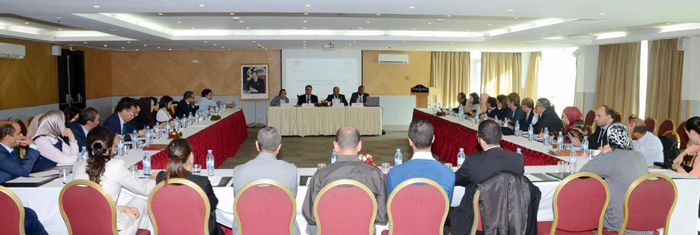About 50 participants attended the meeting, including policymakers, farmers, agriculture and fisheries experts, civil society and entrepreneurs in downstream industries associated with green sectors.
The National Green Export Review (NGER) project launched at the meeting will, in the coming months, generate recommendations and a national action plan aimed at enhancing value-added and export capacity for two sectors selected for focused study by the national stakeholders:
Medicinal and aromatic plants
Organic olives
Other high potential green sectors examined included fisheries and leather.

Speaking on behalf of the Government of Morocco, Mohammed Nbou, Director of Climate Change, Biodiversity and Green Economy at the Ministry, highlighted the need for concerted efforts to ensure sustainable use of natural resources while ensuring continued economic growth in Morocco. He said that the green sectors under discussion are key economic sectors for the country that provide significant benefits to the rural economy.
Nadia Zine, Senior Expert from the Ministry, further stressed the need to ensure equity and inclusiveness when developing green sectors.
UNCTAD representatives at the meeting presented results of detailed studies of the medicinal and aromatic plants; organic agriculture and fish and leather sectors -- examining market strengths and weakness in each sector.
Various stakeholders also made presentations of the progress made and challenges confronted in commercializing each of these green sectors. Several highlighted the need to improve existing policies, laws and institutions, while enhancing products' certification, labelling and diversification.
It was noted that the fisheries and leather sectors already benefit form extensive plans and strategies, and it was therefore proposed that the NGER should focus on sectors and products which have received less attention to date, such as medicinal and aromatic plants and olives.
At the close of the meeting participants confirmed that national experts would soon be recruited under the NGER project to work with stakeholders in the preparation of recommendations and strategies, and that the results of this work would be presented to national stakeholders at the 2nd national stakeholder workshop to be convened in Rabat during the spring of 2016.


